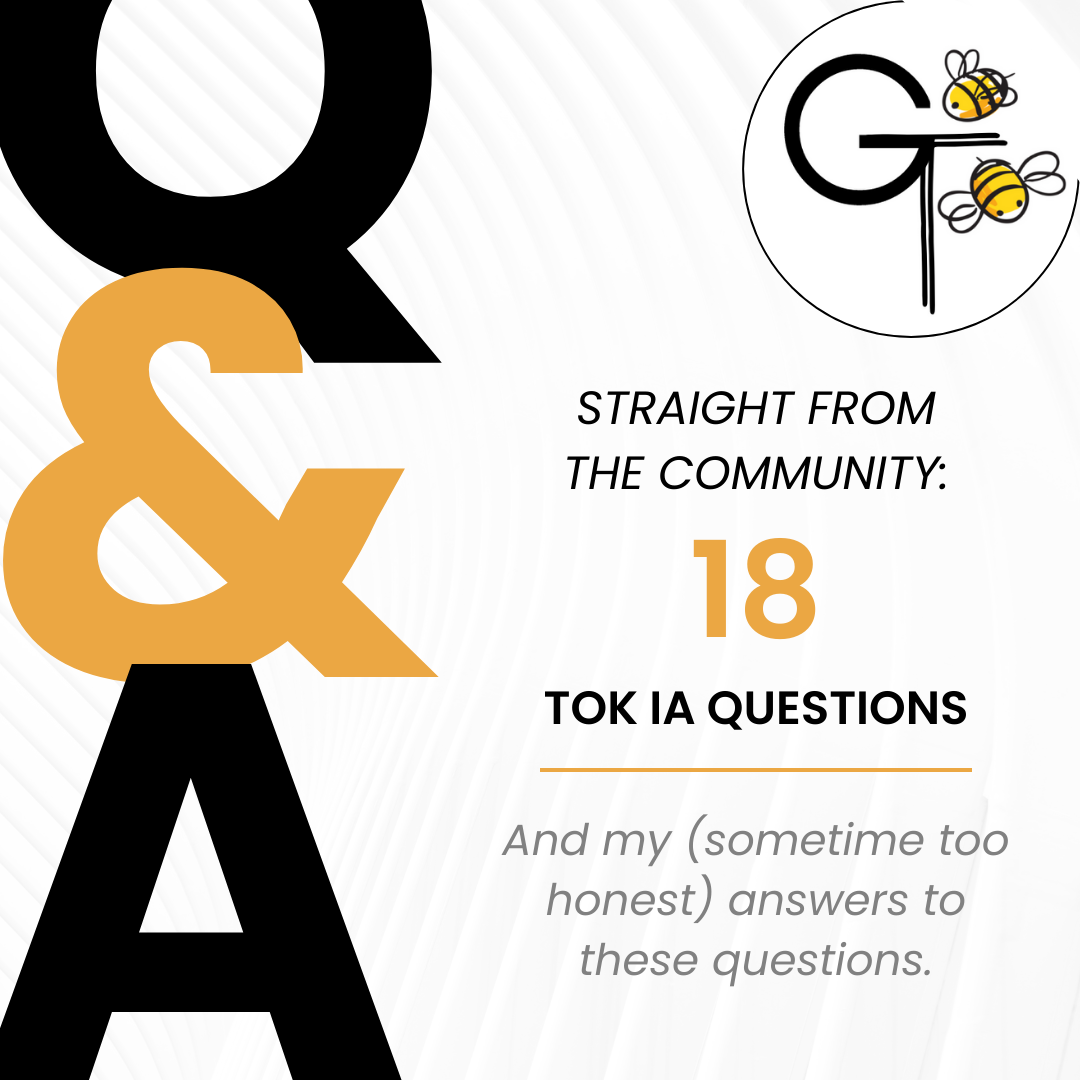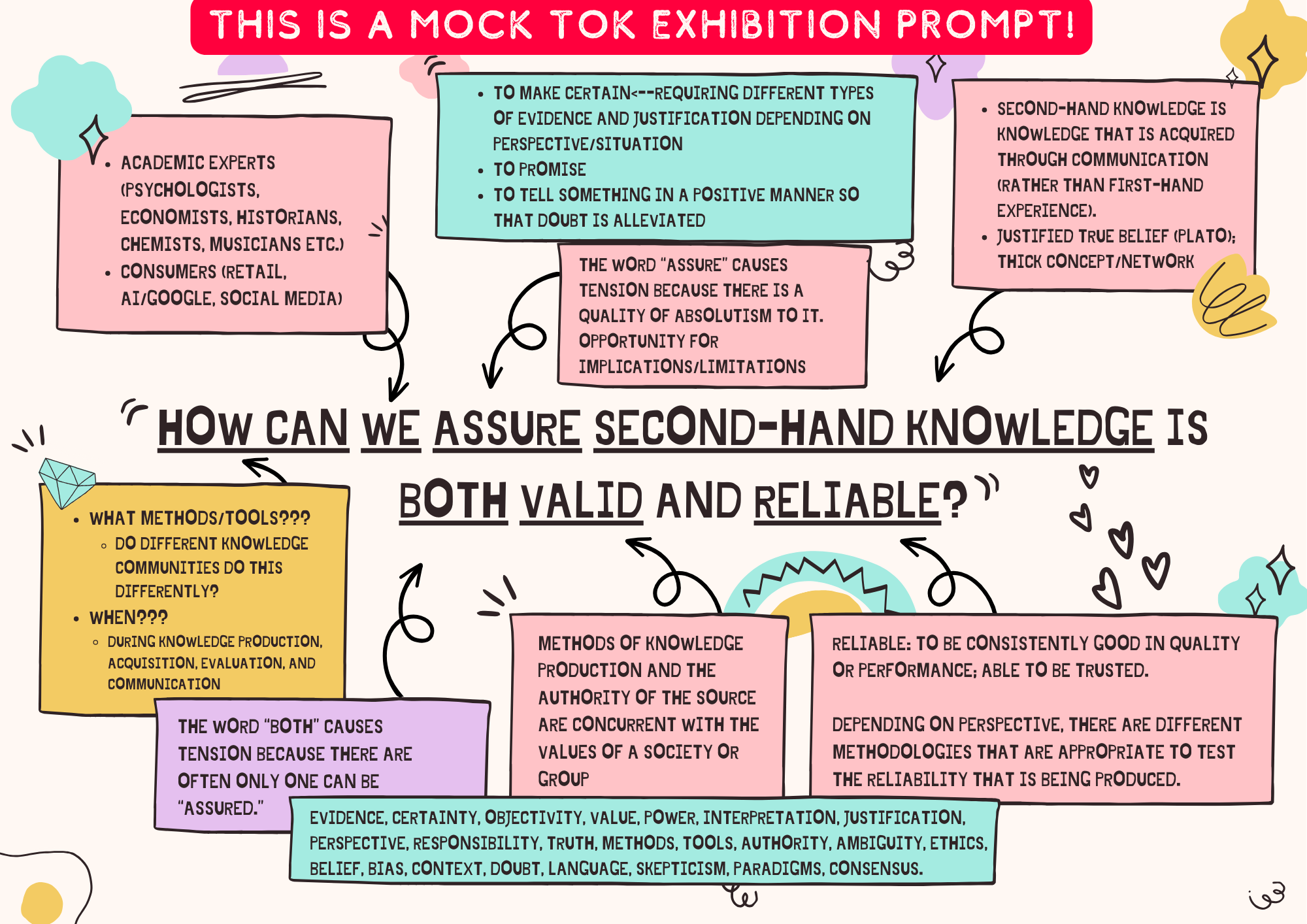Theory of Knowledge Support
Find articles covering all aspects of TOK.
Recent Posts
Each article is crafted to guide, inspire, and support you through your IB journey, whether you're a student grappling with essays or an educator seeking fresh ideas.

This week’s Quid Scio
Join the Gallant Theory community in this week’s Quid Scio. “Quid scio?” (quee-day see-oh) translates roughly to “what do I know?” It is a reflective writing practice that prompts you to: think about what you know, and think about what lived evidence you have to justify this knowledge.

This week’s Quid Scio
Join the Gallant Theory community in this week’s Quid Scio. “Quid scio?” (quee-day see-oh) translates roughly to “what do I know?” It is a reflective writing practice that prompts you to: think about what you know, and think about what lived evidence you have to justify this knowledge.

This week’s Quid Scio
Join the Gallant Theory community in this week’s Quid Scio. “Quid scio?” (quee-day see-oh) translates roughly to “what do I know?” It is a reflective writing practice that prompts you to: think about what you know, and think about what lived evidence you have to justify this knowledge.

This week’s Quid Scio
Join the Gallant Theory community in this week’s Quid Scio. “Quid scio?” (quee-day see-oh) translates roughly to “what do I know?” It is a reflective writing practice that prompts you to: think about what you know, and think about what lived evidence you have to justify this knowledge.

This week’s Quid Scio
Join the Gallant Theory community in this week’s Quid Scio. “Quid scio?” (quee-day see-oh) translates roughly to “what do I know?” It is a reflective writing practice that prompts you to: think about what you know, and think about what lived evidence you have to justify this knowledge.

This week’s Quid Scio
Join the Gallant Theory community in this week’s Quid Scio. “Quid scio?” (quee-day see-oh) translates roughly to “what do I know?” It is a reflective writing practice that prompts you to: think about what you know, and think about what lived evidence you have to justify this knowledge.

This week’s Quid Scio
Join the Gallant Theory community in this week’s Quid Scio. “Quid scio?” (quee-day see-oh) translates roughly to “what do I know?” It is a reflective writing practice that prompts you to: think about what you know, and think about what lived evidence you have to justify this knowledge.

This week’s Quid Scio
Join the Gallant Theory community in this week’s Quid Scio. “Quid scio?” (quee-day see-oh) translates roughly to “what do I know?” It is a reflective writing practice that prompts you to: think about what you know, and think about what lived evidence you have to justify this knowledge.

This week’s Quid Scio
Join the Gallant Theory community in this week’s Quid Scio. “Quid scio?” (quee-day see-oh) translates roughly to “what do I know?” It is a reflective writing practice that prompts you to: think about what you know, and think about what lived evidence you have to justify this knowledge.

TOK Framework: AOK Secret Mission
As you begin studying Areas of Knowledge (AOK), take time to explore how TOK impacts all your courses. This simple set activities will be particularly helpful if you are feeling underwhelmed and disconnected from the day-to-day applicability of TOK theory.

This week’s Quid Scio
Join the Gallant Theory community in this week’s Quid Scio. “Quid scio?” (quee-day see-oh) translates roughly to “what do I know?” It is a reflective writing practice that prompts you to: think about what you know, and think about what lived evidence you have to justify this knowledge.


This week’s Quid Scio
Join the Gallant Theory community in this week’s Quid Scio. “Quid scio?” (quee-day see-oh) translates roughly to “what do I know?” It is a reflective writing practice that prompts you to: think about what you know, and think about what lived evidence you have to justify this knowledge.

This week’s Quid Scio
Join the Gallant Theory community in this week’s Quid Scio. “Quid scio?” (quee-day see-oh) translates roughly to “what do I know?” It is a reflective writing practice that prompts you to: think about what you know, and think about what lived evidence you have to justify this knowledge.

This week’s Quid Scio
Join the Gallant Theory community in this week’s Quid Scio. “Quid scio?” (quee-day see-oh) translates roughly to “what do I know?” It is a reflective writing practice that prompts you to: think about what you know, and think about what lived evidence you have to justify this knowledge.

Word Count Pressure, TOK, and AI-Powered Writing Assistants
You have the knowledge—it lives in your brain. The issue is communicating that knowledge concisely and clearly. And along comes AI-powered writing assistants. What could possibly go wrong?

This week’s Quid Scio
Join the Gallant Theory community in this week’s Quid Scio. “Quid scio?” (quee-day see-oh) translates roughly to “what do I know?” It is a reflective writing practice that prompts you to: think about what you know, and think about what lived evidence you have to justify this knowledge.


This week’s Quid Scio
Join the Gallant Theory community in this week’s Quid Scio. “Quid scio?” (quee-day see-oh) translates roughly to “what do I know?” It is a reflective writing practice that prompts you to: think about what you know, and think about what lived evidence you have to justify this knowledge.

The Art of Parsing: Navigating TOK Exhibition Questions
Understand your TOK Exhibition prompt. Take 20 minutes to complete this parsing activity. The activity is helpful before you get started… if if you get stuck part away through!


